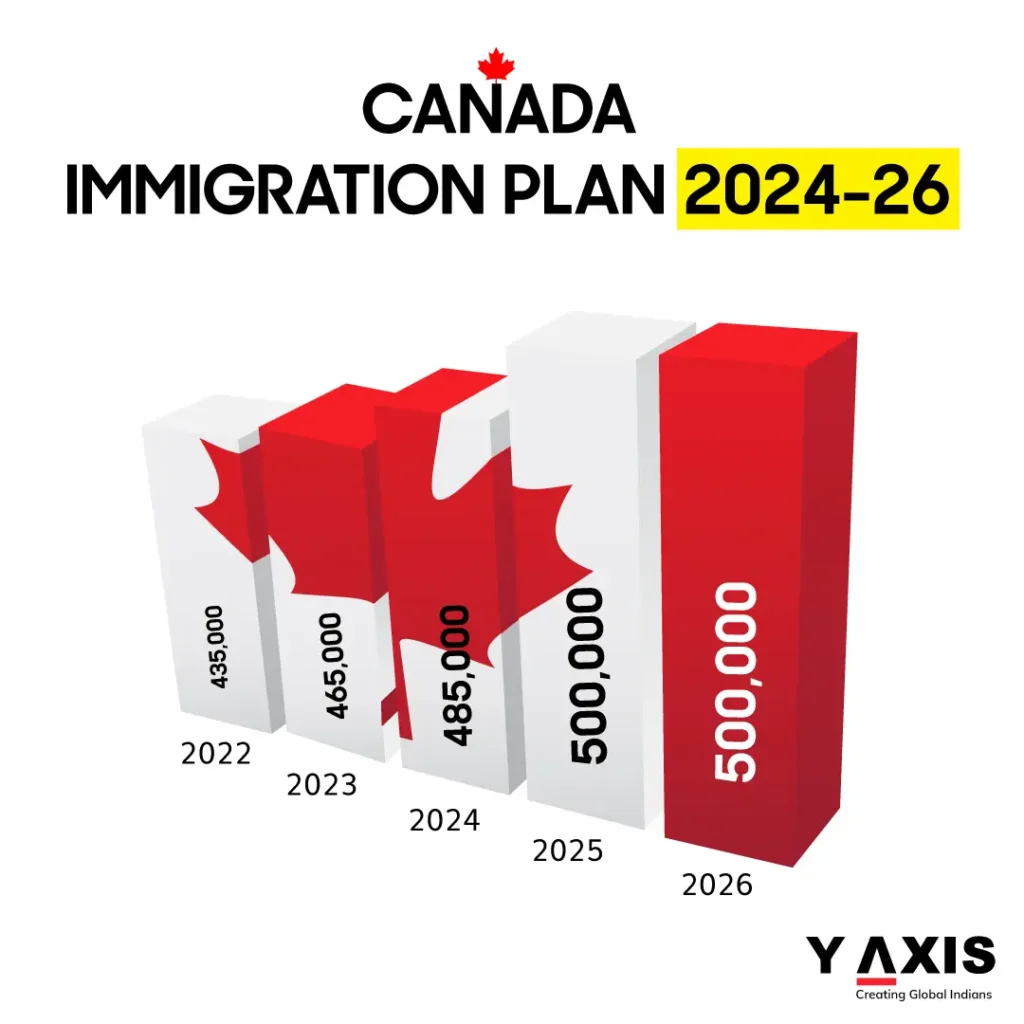“People drive economies, so we need people.” – Nova Scotia Premier Tim Houston
Nova Scotia has an estimated population of 1,070,643. That’s not good enough for Premier Tim Houston, who has set an ambitious target for his small Maritime province: doubling the total population.
After forming government in 2021, Houston’s Progressive Conservative government tabled its Population Growth Strategy, setting a goal of reaching the 2 million mark by 2060. To reach this aggressive target, the Houston government calculates that Nova Scotia will have to welcome 25,000 newcomers every year going forward.
Record-setting immigration
Ever since the Population Growth Strategy was announced, the 25,000 newcomers per year goal has been exceeded twice. From 2021-2022, the province grew by 28,608 people. This was surpassed the following year: from 2022-2023, 33,249 people moved to Nova Scotia.
While Houston’s government is open to the idea of growing the population through both interprovincial and international migration, it has no formal control over whether Canadians decide to relocate from other provinces. There are also some indications that the pandemic trend of Canadians upping stakes to Nova Scotia is slowing down, with the interprovincial migration rate now flat for the first time in eight years – meaning that an equal number of people are leaving Nova Scotia as are arriving from other provinces. If this trend continues, Nova Scotia will most likely have to rely on international migration for the bulk of its annual target of 25,000 newcomers.
Unlike interprovincial immigration, Nova Scotia has substantial control over international migration. While provinces like Ontario, British Columbia, and Quebec are magnets for new immigrants, smaller provinces would receive very little immigration if it were not for Canada’s nearly 80 different provincial nomination programs. Founded in 1998, the Provincial Nominee Program (PNP) was created to spread immigration across the country, rather than allow it stay concentrated in a few provinces. Under this program, provinces can create different “streams” targeting immigrants with specific skillsets they desire to attract, nominate prospective immigrants, and set quotas.
Tim Houston has described immigration as “critical to the future of Nova Scotia and Canada”, and has overseen record-breaking numbers since his election in 2021. Houston has used various measures including the Atlantic Immigration Program, a pilot provincial nomination program for the Atlantic provinces which was made permanent in 2022, to put the pedal to the metal on immigration numbers.
From July 2021 to July 2022, Nova Scotia received 13,816 immigrants and 3,816 net non-permanent residents (international students and foreign workers). From July 2022 to July 2023, the province welcomed another 12,203 immigrants, and 15,518 net non-permanent residents. Under Houston’s watch, Nova Scotia has also relaxed enforcement against illegal immigrants, becoming the first province to stop holding immigration detainees in its provincial jails on behalf of the federal government.
Immigration persuasion

The Houston government’s 2022/2023 budget contained considerable immigration-related expenditures, including $1 million for immigration and population growth marketing campaigns. The Nova Scotia Department of Labour, Skills and Immigration created a campaign in partnership with My East Coast Experience Media, which describes itself as “a digital media, publishing, marketing, and entertainment brand dedicated to celebrating the contributions of immigrants to their chosen home in Canada.” The media organization lays out its main goal on its website:
“We hope to inspire East Coasters to welcome immigrants with open minds and open arms, and we hope to inspire newcomers to stay, take advantage of the region’s amazing opportunities, make the East Coast their home and flourish. We believe this growing population can and will add to our already vibrant and rich Atlantic Canadian culture.”
The campaign consists of “10 different stories featuring subjects who each took a different pathway to settle in the province”, describing in sappy detail Yemi Olanyi’s journey from Nigeria, and how Melissa Alvarez found her calling studying psychology at Saint Mary’s University. In these stories, Nova Scotia is portrayed as a dream destination for immigrants to start their lives anew, and immigration as an economic and social boon for the province.
Two million Nova Scotians or bust!
Raising Nova Scotia’s population is a personal obsession of Houston’s. In a podcast with Maritime business publication Huddle.today, Houston explains that he resonates with former Prime Minister Brian Mulroney’s enthusiastic support for raising Canada’s population to 100 million, an idea which was initially put forth by the influential Century Initiative immigration lobby. In the same podcast, he admits that his initial population growth goal was to triple the population to three million: “I actually had in my mind that probably three million Nova Scotians was best, but I said, ‘What’s really achievable,’ and we kind of settled on two million.”
Premier Houston expresses deep concern about Nova Scotia’s previous period of population decline: “…the major discussions were about closing schools…the talk in the Tim Hortons was the businesses that were closing and the opportunities that were disappearing in communities.” He sees attracting large numbers of newcomers as the answer to Nova Scotia’s ageing population, and the province’s trend of deaths outpacing births: “Our demographics are not great. So doubling the population, for me, is about right-sizing our demographics. It’s about making the province younger.”
While opinion polls show that the Canadian public is increasingly skeptical of large-scale immigration, there remains a strong commitment to population growth among Canada’s political elite. While Tim Houston may have a particularly ambitious goal, many Canadian premiers have targets of their own.
In a speech at his official portrait unveiling, former premier of Saskatchewan Brad Wall cited surpassing the Prairie province’s 1 million mark as one of the key pieces of his legacy. Current Saskatchewan Premier Scott Moe has set the goal of growing the province’s population to 1.4 million by 2030. Premier Dennis King has been vocal about the benefits immigration-driven population growth brings to P.E.I. – though he was recently forced to slash his aggressive immigration nomination targets by 25% after pressure to slow down the small Island’s population growth.
The challenges of growth
The rate and scale of Nova Scotia’s population growth is making life difficult for many of the province’s residents.
Healthcare is under considerable strain. As of the summer of 2023, 152,000 Nova Scotians (15% of the population) were on the waitlist for a family doctor – 34% of whom were on the list because they were new to the province. At that time, the list had grown by 50,000 in just one year. According to a study by the Fraser Institute, Nova Scotians face the longest wait times for healthcare in the entire country. While healthcare problems certainly preceded the Houston government, the current unprecedented population growth is adding a serious burden to an already overstretched system.
Another major issue is housing. Rent is rising faster in Nova Scotia than at any time since publicly available data collection began in 1979. The province’s rent inflation rate of 14.1% is the highest in Canada, and is particularly pronounced in Halifax, which has maintained a vacancy rate of roughly 1% for three years straight – one of the lowest in the country. Homelessness in Halifax has risen significantly, and the city is seeing an alarming rise in the number of tent cities. In one case, a Good Samaritan noticed people sleeping in flimsy tents beside the Halifax City Hall and decided to buy them some well-insulated ice fishing tents.
Despite these problems, Houston remains defiantly committed to his project of growing Nova Scotia’s population: “Growth is not without its challenges, but I think as a government — as premier — I accept the challenges of growth.”
Do you have a social license for that population growth?
In seeking to double Nova Scotia’s population by 2060, Premier Tim Houston is pursuing an ambitious experiment with serious and long-lasting consequences – some of which are already apparent. Nova Scotia’s long stretch of population decline is over. In exchange, however, the small Atlantic province has brought the burdens and strains which have accompanied immigration-driven population growth in the rest of the country to its shores.
While Houston’s government remains convinced that this was a good tradeoff, the people of Nova Scotia have not been asked whether or not they want their home province to grow dramatically in the coming decades. Rather than consultation, the Houston government funded a marketing campaign to promote the concept of population growth to Nova Scotians.
There have been no recent opinion polls on immigration attitudes in Nova Scotia specifically, but Atlantic Canada as a whole has registered one of the highest levels of opposition to large-scale immigration in Canada. In a Leger poll conducted on November 28th, 2023, 53% of respondents in Atlantic Canada said the country should accept fewer immigrants – higher than any province barring Alberta, which it was tied with. In an Abacus poll with a larger sample size conducted two days later, 68% of respondents in Atlantic Canada said Trudeau’s immigration levels are too high, a percentage surpassed only by Alberta and Ontario – which both recorded a 70% disapproval of the current immigration rate.
As the effects of Premier Tim Houston’s population experiment become more and more apparent in the daily lives of Nova Scotians, will the public demand a course correction?
All content on this website is copyrighted, and cannot be republished or reproduced without permission.
Share this article!





It should also be noted that Mr. Houston’s wife works for what is essentially an immigrant recruiting organization. Conflict of interest?
Never again will I vote for this liar. I don’t remember him putting this proposition in his campaign! Health Care is crammed by Foreign Nationals,The roads are dangerous because of lawless foreign nationals who crash and flee the scene.Housing is being gobbled up l by foreign nationals leaving low wage Nova Scotians homeless Many of these people live off taxpayer money and many have low wage jobs meaning they don’t contribute much in tax!
The population increase is driving wildlife out of their homes into starvation!
Who wants this burden dropped on their doorstep?
Feel free to share this article with other Nova Scotians, this topic has received little attention in the mainstream media. And subscribe to the Dominion Review newsletter to keep up with my immigration coverage.
As a former member of the CONservative Party, I will never vote for this party again because it is neither patriotic, Conservative nor does it value CANADIAN culture.
I firmly believe that this party is entirely fraudulent and thoroughly complicit for Canada being placed into a state of managed ‘progressive’ destruction.
On all levels Tim Houston lied and failed. No one wants mass immigration. No one likes mass immigration. No one voted for mass immigration.
If the CONservative Party valued Canada, Conservatism and CANADIAN culture it would have been supporting Traditional Marriage and the family not continually bending over and assisting the proliferation of Socialist/Communist based policies in all areas of our society.
If a Canadian wants to look for a job they are met with a thoroughly racialist and discriminatory DEI policy that identifies and encourages all those to apply based on non-merit based criteria while intentionally omitting the single demographic community that is overwhelmingly responsible for the building of Canada and Western Civilization: the White Male. I might add that all these racialist policies are driven by leftist anti-Canadian agenda that are in total violation of Canada’s – sadly Socialist – Charter of Rights and Freedoms yet you will not find a single CONservative MP or MLA to openly state that fact. Why?
Because the CONservative Party, for DECADES, has intentionally kept out qualified, informed patriotic Conservative Canadians that actually care about Canada and its dying CANADIAN culture and identity.
The CONservative Party – including the “Progressive” “CONservative” Party rather place long time NDP’ers, Liberal Campaign Managers, social climbers or know nothing stooges as their candidates rather than openly patriotic Conservatives.
Tim Houston and his collection of do-nothing stooges have, and are, destroying Nova Scotia…
PS: I totally agree with Brenda Stevenson above…. However, I think this was done all by design.
Had the Conservative Party actually been Patriotic, Conservative and valued CANADIAN Culture, Pierre Trudeau would never have come to power. If, by chance, he did, Brian Mulroney would have exposed and dismantled ALL of his Communist sympathizing Socialist agenda along with it….
Make Canada CANADIAN Again!
pps: there’s a great, yet sadly true, video on YouTube called “The Most Canadian Man in the World”